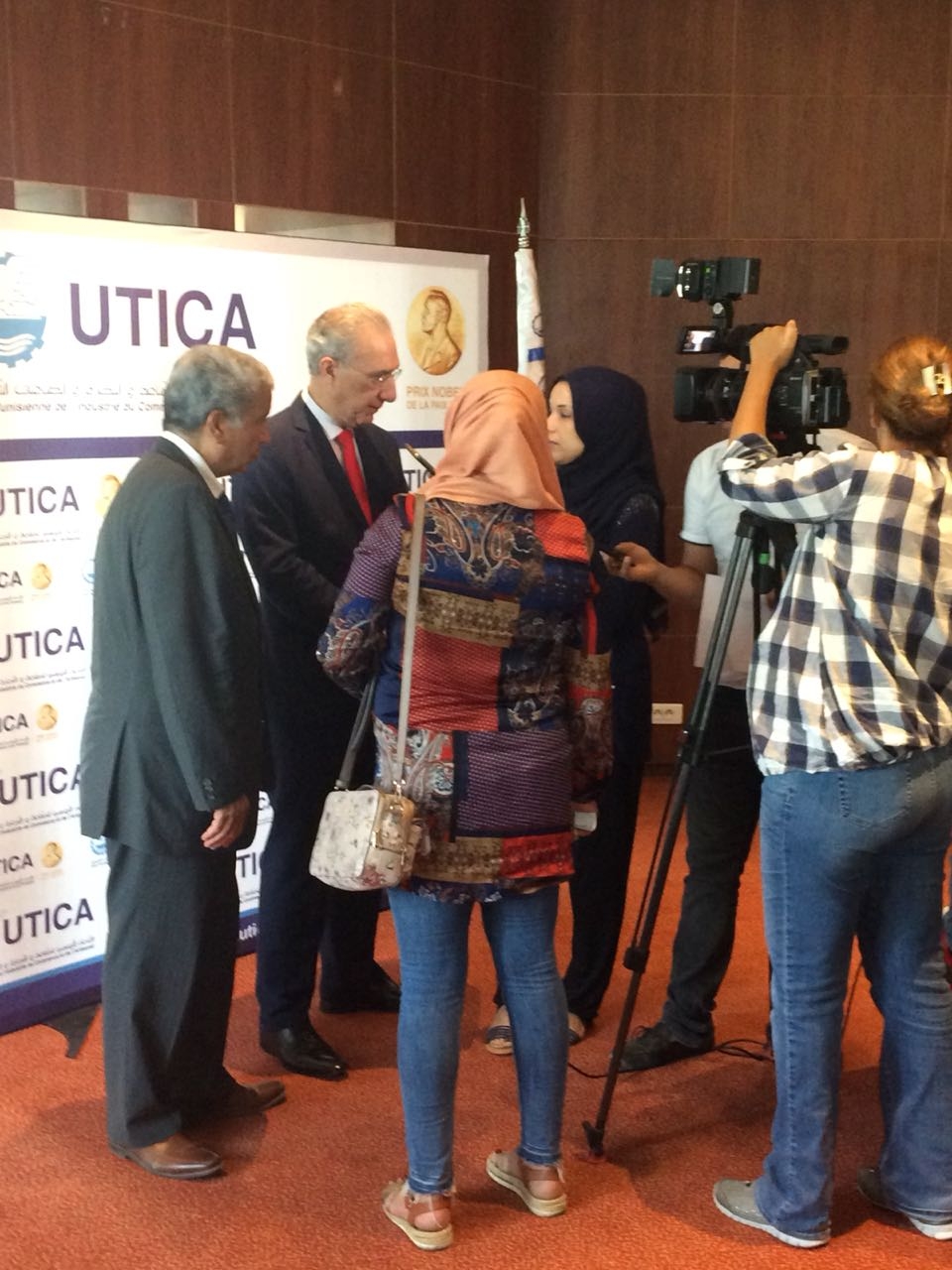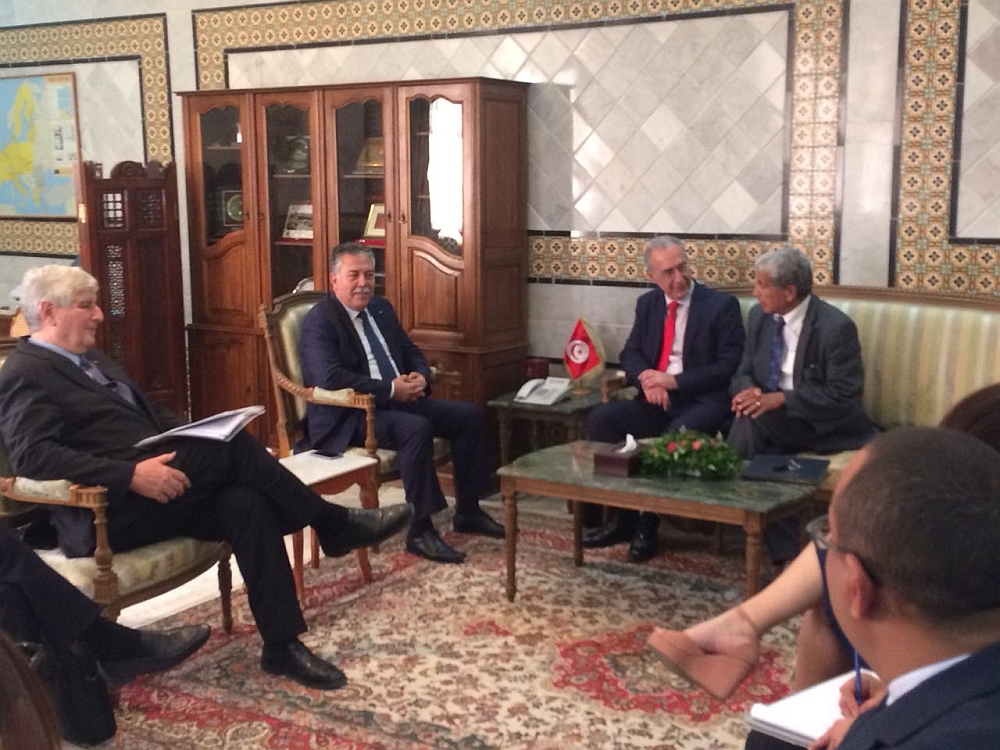São Paulo – This Friday (20), the president of the Arab Brazilian Chamber of Commerce, Rubens Hannun, attended the eighth meeting of the Brazil-Tunisia Business Council, in Tunis. Hannun presides the council on the Brazilian side with ambassador Hassine Bouzid as his counterpart on the Tunisian side.
According to the Arab Chamber’s executive of International Business, Fernanda Baltazar, who was at the meeting, the main topics discussed were the resume of negotiations of a free trade agreement between Mercosur and Tunisia and the signing of an investment facilitation agreement between Brazil and the Arab nation. These two agreements were also discussed by Brazil’s Foreign Minister, Aloysio Nunes, with Tunisian authorities this Friday. Aloysio is in an official visit to Tunisia.

In the council’s meeting, members argued for the organization of business forums in both countries and arranged for the return of Tunisian business owners to the next trade expo event of the São Paulo Supermarkets Association Show (APAS Show). Tunisian companies have taken part in the last few editions of the expo in a pavilion organized by the Arab Chamber.
In the meeting held at the headquarters of the Tunisian Union for Industry, Commerce and Handicrafts (UTICA), the council established that Tunisian companies will be offered a business structure at the Arab Chamber to help them develop their businesses in Brazil and that UTICA will do the same for Brazilian companies seeking to do business in the Arab country. Other main topic discussed was the importance to promote tourism, especially to Tunisia.
According to Baltazar, Tunisian members of the council pointed out that there are business opportunities to Brazilian companies in the beef and poultry markets. The Brazilian Animal Protein Association (ABPA) and the Brazilian Beef Exporters Association (ABIEC) are members of the council.
From the Brazilian side, took part in the meeting representatives of the Federation of Industries of the State of São Paulo (FIESP), of the Brazilian Association of Olive Oil Producers, Importers and Traders (OLIVA), and of companies Eurofarma, Embraer and Atech. Atech is a subsidiary company of Embraer in the systems area.
The Brazilian delegation met, at Tunisia’s Ministry of Foreign Affairs, the secretary of state, Sabri Bachtobji (2nd from left to right in the first picture), who was the country’s ambassador in Brazil, and, on Thursday, the group visited the Ministry of Trade, where the Arab Chamber discussed strategies to facilitate the bilateral trade.
Trade
Last year, Brazilian exports to Tunisia totaled USD 286.6 million, up 45% over the previous year. On the other hand, imports totaled USD 50.5 million, up 6% in the same comparison, which resulted in a surplus of USD 236 million to Brazil, 58% higher than the one registered in 2016. The data is from the Ministry of Industry, Foreign Trade and Services (MDIC), compiled by the Arab Chamber.
“It’s a serious situation,” said Hassine Bouzid, who was an ambassador in Brazil, during the meeting of the council, according to a news feature by news outlet Tunis Afrique Presse (TAP). The increase of Tunisia’s trade deficit with Brazil was caused by a sharp drop in sales of phosphates and products. To Bouzid, the trade volume is below expectations, despite the good diplomatic ties between both countries.
The ambassador pointed out that the trade needs a new momentum with the facilitation of export and import procedures, more visits by entrepreneurs from one country to the other, participations in trade expos and other economic events and the diversification of trade with the addition of sectors such as pharmaceutical, aviation and automotive.
According to TAP, Rubens Hannun remarked that Brazil is heavily dependent on imports of fertilizers and that the Tunisian phosphate production needs to return to full capacity for it no to lose this market.
Hannun added that the bilateral cooperation must include cultural actions to bring together both peoples and the organization of a joint program to promote tourism.
Still according to TAP, UTICA’s vice president, Hichem Elloumi, pointed out the importance of identifying investment opportunities in Brazil.
Translated by Sérgio Kakitani




